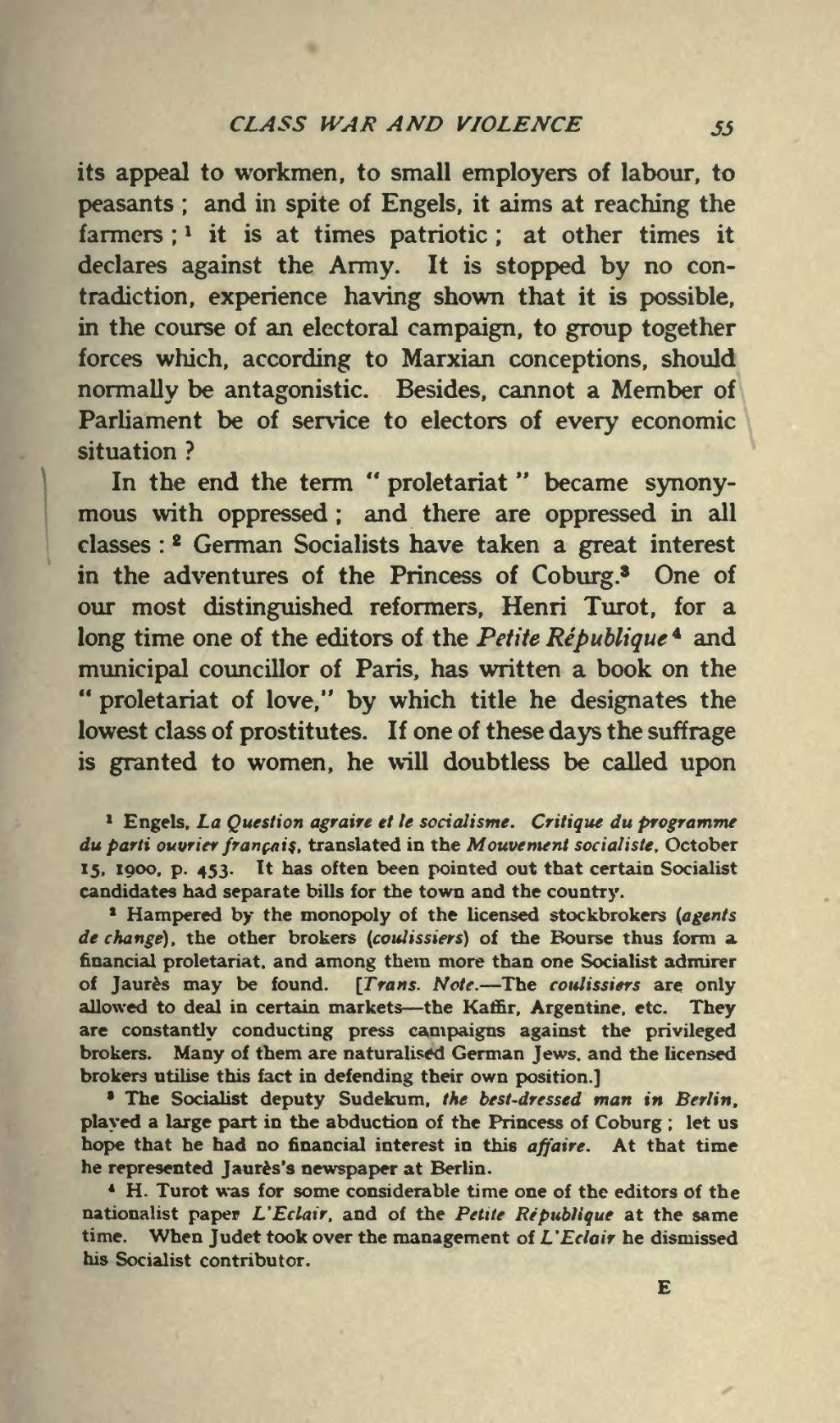its appeal to workmen, to small employers of labour, to peasants; and in spite of Engels, it aims at reaching the farmers;[1] it is at times patriotic; at other times it declares against the Army. It is stopped by no contradiction, experience having shown that it is possible, in the course of an electoral campaign, to group together forces which, according to Marxian conceptions, should normally be antagonistic. Besides, cannot a Member of Parhament be of service to electors of every economic situation?
In the end the term "proletariat" became synonymous with oppressed; and there are oppressed in all classes:[2] German Socialists have taken a great interest in the adventures of the Princess of Coburg.[3] One of our most distinguished reformers, Henri Turot, for a long time one of the editors of the Petite Répuhlique[4] and municipal councillor of Paris, has written a book on the "proletariat of love," by which title he designates the lowest class of prostitutes. If one of these day the suffrage is granted to women, he will doubtless be called upon
- ↑ Engels, La Question agraire et le socialisme. Critique du programme du parti ouvrier français, translated in the Mouvement socialiste. October 15, 1900, p. 453. It has often been pointed out that certain Socialist candidates had separate bills for the town and the country.
- ↑ Hampered by the monopoly of the licensed stockbrokers (agents de change), the other brokers (coulissiers) of the Bourse thus form a financial proletariat, and among them more than one Socialist admirer of Jaurès may be found. [Trans. Note.—The coulissiers are only allowed to deal in certain markets—the Kaffir, Argentine, etc. They are constantly conducting press campaigns against the privileged brokers. Many of them are naturalised German Jews, and the licensed brokers utilise this fact in defending their own position.]
- ↑ The Socialist deputy Sudekum, the best-dressed man in Berlin, played a large part in the abduction of the Princess of Coburg; let us hope that he had no financial interest in this affaire. At that time he represented Jaurès's newspaper at Berlin.
- ↑ H. Turot was for some considerable time one of the editors of the nationalist paper L'Eclair, and of the Petite République at the same time. When Judet took over the management of L'Eclair he dismissed his Socialist contributor.
